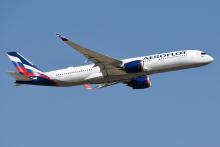ARC Electronics and the Fishenko network is one of the best documented examples of dual-use export busting to the Russian Federation.
Aerospace
“The sanctions they applied on myself, on my companies and on my friends are absolutely unfair, absolutely fake and absolutely wrong” 48-year-old Ilias Sabirov told Reuters after allegedly caught selling radiation hardened chips to Russia without a license.[1] Radiation hardened chips, which require an export license due to their military uses, are one of the more sought-
Xiaoqing Zheng[1] worked at General Electric (GE) for 10 years from 2008 to 2018 serving as an engineer specializing in sealing technology. During his tenure at GE, Mr. Zheng had conspired with Zahoxi Zhang, a business partner from the PRC, to steal GE’s turbine technology and reproduce said technology in China for profit.
In 2016, Wenxia Man, a.k.a.
Wei Sun had been an employee of Raytheon Missile and Defense for 10 years before attempting to illegally transport proprietary technical information out of the country and into China. In 2018, ahead of international travel Sun had requested to take a company laptop on his travels. Raytheon denied the request.
Yi-Chi Shih, a California resident and former president of Chengdu GaStone Technology Company (CGTC), was attempting to steal monolithic microwave integrated circuits (MMIC) from a US based company to ship back to China for reproduction by CGTC. Shih used a front company he operated called Pullman Lane Productions, LLC. Pullman was being financed by the PRC government for the acquisition of MMIC technology.
A professor at Texas A&M University, Zhengdong Cheng, was leading a team of students to perform research for NASA. This government funded grant research had a stipulation that prohibited any collaboration with Chinese universities or Chinese owned companies. Cheng, however, failed to disclose his prior association with Guangdong University of Technology in China and his association with the PRC’s Thousand Talents Plan.
The PRC has many instances of economic espionage but very rarely are they linked directly to government organizations as explicitly as in 2018. In this instance, hackers and insiders were alleged to be working for the Jiangsu Province Ministry of State Security (JSSD). This branch of the Chinese Ministry of State Security represents the Jiangsu Province, the capital of which is Nanjing.
